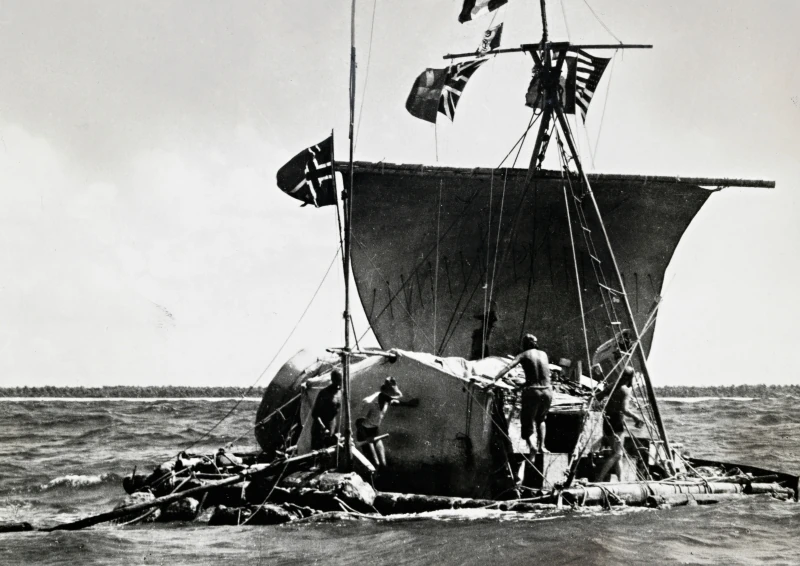In the middle of the Pacific Ocean, thousands of miles from the
nearest mainland, lie the islands of Polynesia. On some of the islands,
there are ancient roads and buildings. These show that there have been
ancient civilizations on the island. The most mysterious of the
Polynesian Islands is Easter Island, where there are giant heads made of
stone. Some of them are as tall as a four-storey building. These are very
old. Obviously men have been living on these islands for a long, long
time. But how did the islanders first get to the islands so long ago, and
how did they do it when there weren't any big ships? These are some of
the questions which are difficult to answer.
Thor Heyerdahl, a Norwegian explorer, thought he had the answer
to the mystery. He believed the people from Ancient Peru sailed more
than 6000 kilometres across the Pacific Ocean on their small rafts to
start a new life on the islands of Polynesia.
Nobody believed Heyerdahl because they knew that the people of
ancient Peru only had wooden rafts to sail on. How did the people sail
from Peru to the islands? Heyerdahl wanted to show everybody that his
theory was right. Together with four friends, he started to build a raft
like those of the ancient Peruvians. When it was finished they called it
Kon-Tiki, the name of an ancient god. They spent a long time planning
their journey and deciding what to take with them.
The natural movement of the water (a current called the Peru
Current), carried them west. Although they had lots of problems during
their journey with the weather and sharks, the boat was fine - it didn't
sink. After 102 hard days at sea, the explorers arrived on one of the
Polynesian Islands. Heyerdahl proved it was possible.
